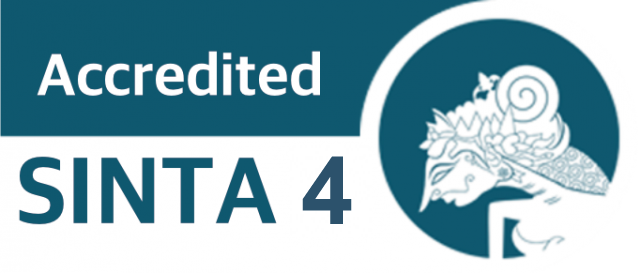Pengaruh Model Project Based Learning Dalam Pembelajaran Berdiferensiasi Terhadap Kesadaran Perubahan Iklim Siswa SMA
Abstract
Full Text:
PDF (Bahasa Indonesia)References
Avivi, A. A., Dhea P, A., Rahayu, F. F., Saptariana, M., & Salamah, A. U. (2023). Implementasi Pembelajaran Berdiferensiasi Dengan Model Project Based Learning Pada Peserta Didik Sekolah Menegah Atas Kelas X Pada Materi Bioteknologi. Jurnal Pendidikan Sejarah Dan Riset Sosial Humaniora, 3(3), 251–257
Boezeman, D., & de Coninck, H. (2018). Improving collaborative knowledge production for climate change mitigation: lessons from EU Horizon 2020 experiences. Sustainable Earth, 1(1).
Bell, S. (2010). Project-Based Learning for the 21st Century: Skills for the Future. The Clearing House: A Journal of Educational Strategies, Issues and Ideas, 83(2), 39–43.
Bruner, J. S. (1961). The act of discovery. Harvard Educational Review, 31, 21–32.
Dedi R. R., Muhamad Z, Ziadatul F., Asep L. H. A., Heru S., Aris D., & Muhammad M. (2022). Efforts to Revitalize Student Learning Motivation After the Covid-19 Pandemic. Southeast Asian Journal of Islamic Education Management, 3(1), 89–102.
EPA, U., & Change Division, C. (2014). Inventory of U.S. Greenhouse Gas Emissions and Sinks: 1990-2014 – Main Text. http://www3.epa.gov/climatechange/emissions/usinventoryreport.html
Farihin, A. U. (2023). MUJAHADA: Jurnal Pengabdian Masyarakat Meningkatkan Kesadaran Lingkungan melalui Edukasi dan Partisipasi Masyarakat, 1(1).
Gebeyehu, D., Dalelo, A., Eshetu, F., Belachew, W., Wodaj, H., Abate, A., & Hagos, M. (2024). Energy-, environmental-, and climate change literacy among primary and middle school students. International Journal of Research in Education and Science (IJRES), 10(1), 100-124.
Gifford, R., Kormos, C., & McIntyre, A. (2011). Behavioral dimensions of climate change: Drivers, responses, barriers, and interventions. Wiley Interdisciplinary Reviews: Climate Change, 2(6), 801–827.
Goleman, D. (1996). Emotional Intelligence, Why It Can Matter More Than IQ. London: Bloomsburry. 62–63
Hassan, A., Noordin, T. A., & Sulaiman, S. (2010). The status on the level of environmental awareness in the concept of sustainable development amongst secondary school students. Procedia - Social and Behavioral Sciences, 2(2), 1276–1280.
Iif L., Muhamad G. H., Agus F. C.W. (2018). Integrasi Esd (Education For Sustainable Development) Dalam Pembelajaran Problem Based Learning (Pbl) Untuk Meningkatkan Penguasaan Konsep Dan Profil Sustainability Awareness Siswa Smp Pada Topik Perubahan Iklim. (Diakses pada 22 November 2023) https://repository.upi.edu/45121/
Josephine O., Billiah G., & George A. (2023). Barriers To Transformative Climate Change Education: Mitigation And Resilience-Building . International Journal of Social Science, 3(3), 389–396.
Lawson, D. F., Stevenson, K. T., Peterson, M. N., Carrier, S. J., L. Strnad, R., & Seekamp, E. (2019). Children can foster climate change concern among their parents. In Nature Climate Change (Vol. 9, Issue 6, pp. 458–462). Nature Publishing Group
López, J. A., & Palacios, F. J. P. (2024). Effects of a Project-Based Learning Methodology on Environmental Awareness of Secondary School Students. International Journal of Instruction, 17(1), 1–22.
Monroe, M. C., Plate, R. R., Oxarart, A., Bowers, A., & Chaves, W. A. (2017). Identifying effective climate change education strategies: a systematic review of the research. Evironmental Education Research, 25(6), 791–812.
Schultz, P. W. (2002). Inclusion with Nature: The Psychology Of Human-Nature Relations. In Psychology of Sustainable Development (pp. 61–78). Springer US. https://doi.org/10.1007/978-1-4615-0995-0_4
Shin, Y.-J., Park, H., & Seo, H.-A. (2023). The Influence Of A Project-Based Club Program On Middle School Students’ Action Competency In Responding To Climate Change. Science And Technology Education: New Developments And Innovations, 233–245.
Suyatna, A. (2017). Uji Statistik Berbantuan SPSS untuk Penelitian Pendidikan Menggunakan Pendekatan Kasus Penelitian Pendidikan. Yogyakarta: Media Akademia
Tomlinson, C. A. (2001). How to differentiate instruction in mixed-ability classrooms. Virginia USA: Association for Supervision and Curriculum Development. 72–85
UNICEF. (2021). The Climate Crisis is a Child Rights Crisis.
(Diakses pada 9 November 2023)
https://www.unicef.org/reports/climate-crisis-child-rights-crisis
Wals, A. E. J. (2011). Learning Our Way to Sustainability. Journal of Education for Sustainable Development, 5(2), 177–186
DOI: https://doi.org/10.37058/diffraction.v6i2.13588
Refbacks
- There are currently no refbacks.
Copyright (c) 2024 Annisa Dira, Wayan Suana, Dimas Permadi

This work is licensed under a Creative Commons Attribution-ShareAlike 4.0 International License.
Jurnal ini terindeks oleh:
Pendidikan Fisika FKIP Univesitas Siliwangi
Gedung FKIP lantai 1, Jl. Siliwangi No. 24, Kota Tasikmalaya - 46115
email: diffraction.fisika@unsil.ac.id
DIFFRACTION: Journal for Physics Education and Applied Physics
terlisensi creative commons attribution-share alike 4.0 international


